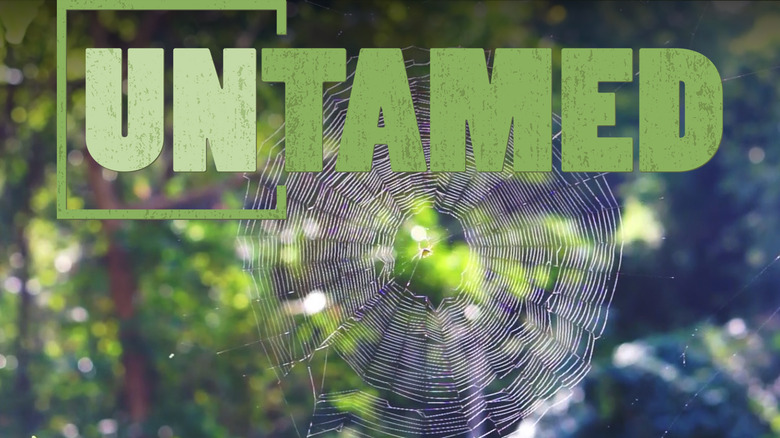- Author:
- Trish Reed
- Subject:
- Cross-Curricular, STEM/STEAM, CTE, Career Connections
- Material Type:
- Activity/Lab, Lesson, Reading, Teaching/Learning Strategy, Visual Media
- Level:
- Middle School, High School
- Provider:
- VPM
- Provider Set:
- UNTAMED
- Tags:
- License:
- Creative Commons Attribution
- Language:
- English
- Media Formats:
- Downloadable docs, Video
Education Standards
One Health | UNTAMED | Wildlife Rehabilitation Careers

Overview
Learn the meaning of "One Health." One Health is a concept that connects the health of animals, people, and the environment. Each aspect is equal, important, and delicately intertwined. In this episode, Wildlife Center veterinary and rehabilitation staff, along with public health officials, explain One Health concepts and challenges and highlight how we can work together for the optimal health of all.
One Health | UNTAMED | Wildlife Center of Virginia
More Information About This Resource:
UNTAMED: Life is Wild is a television series that offers an unprecedented behind-the-scenes look at the lifesaving work of the Wildlife Center of Virginia. Each episode features stories, videos, and interviews with Center staff, focusing on different species treated at the Center and exploring a variety of challenging wildlife issues from the perspective of a large wildlife hospital. Produced by VPM
One Health | UNTAMED Background Reading
Background Reading
UNTAMED 201:
What Does “One Health” Mean in a Changing World?
“Man did not weave the web of life – he is merely a strand in it. Whatever he does to the web, he does to himself.”
- Chief Seattle,1780-1866
Throughout much of 2020, as a worldwide pandemic has drastically changed our lives, most of us have been focused on the health of our fellow human beings. It has been easy to lose sight of the bigger picture, in which the health of humans, animals, plants and our shared environment are inextricably linked.
A transdisciplinary approach to global wellness, known as One Health, emphasizes these connections with a goal of achieving better health for all living things and the surroundings they share. The concept is not new, of course, but it has gained new attention in recent years with changing interactions among people, animals, vegetation, and the air and water that sustain them.
In fact, the COVID-19 pandemic perfectly illustrates how the movement of people and animals through international travel and trade can spread diseases quickly across the globe. The origin of this novel coronavirus has been traced to a market where animals were sold for human consumption, and as the illness has spread, the resulting changes in human behavior have caused clear differences in our environments.
In this episode of UNTAMED, Wildlife Center of Virginia veterinary and rehabilitation staff, along with public health officials, explain the concept of One Health and explore the challenges we face as we work together for the optimal health of all.
“We now know,” said Ed Clark, president and co-founder of the Wildlife Center of Virginia, “that it is impossible to separate considerations of the environment from human health considerations and from considerations of animal health. It’s all one health.”
While One Health relies on the global collaboration of many scientific professionals—epidemiologists, zoologists, ecologists and more—it also relies on the help of everyday people who are concerned about wellness and balance in the world. Your local animal control officers, park rangers and farmers all play a role in One Health—and so can you.
You can start with a look around your own home and yard, and think about some small actions that might have a pretty big impact. Here are a few ideas.
What You Can Do!
-Vaccinate pets and livestock according to veterinarian recommendations, and keep human vaccinations up to date.
-Eliminate habitats that welcome potential disease carriers, like standing water that invites mosquitoes.
-Check your yard for invasive plant species (Japanese honeysuckle, English ivy, etc.) that can spread rapidly and harm the more helpful native plants.
-Reduce use of pesticides and herbicides. You might be killing more than just weeds and mosquitoes with your current methods.
-Reduce waste, especially single-use plastic containers and plastic bags.
One Health | UNTAMED Wildlife Center of Virginia Compendium
The Wildlife Center of Virginia compendium offers a library of materials that support each episode of Untamed, including patient stories and videos, additional learning resources, and worksheets and activities for students who are watching Untamed as a part of classroom learning on biology, natural history, and the environment. To access this resource, click here: https://www.wildlifecenter.org/untamed-compendium.
Working with Wildlife
Working with Wildlife:
Are your students interested in learning more about a career working with wildlife? Whether working in wildlife medicine, rehabilitation, education, and/or conservation, the general advice from experts in this field is to get hands-on experience and get to know the professionals who are working in the areas in which they want to be involved! The Wildlife Center of Virginia has a number of resources compiled for students seeking advice on how to get started. Access these resources online at https://www.wildlifecenter.org/training-opportunities